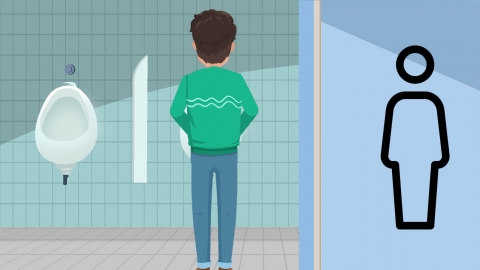What causes urine to be particularly yellow?
Generally, abnormally dark yellow urine may be caused by factors such as insufficient water intake, dietary influences, cystitis, viral hepatitis, or autoimmune hemolytic anemia. It is recommended to seek timely medical attention, identify the underlying cause, and undergo symptomatic treatment under a doctor's guidance. Detailed explanations are as follows:

1. Insufficient water intake: When water intake is too low, urine becomes concentrated, increasing the proportion of urochrome, resulting in darker yellow urine. Increasing daily water consumption and maintaining a daily intake of 1500-2000 milliliters can dilute the urine, gradually lightening its color.
2. Dietary influences: Excessive consumption of foods rich in carotene, such as carrots and pumpkin, may cause yellow-colored urine. Reducing intake of such foods and maintaining a diversified diet usually allows urine color to return to normal.
3. Cystitis: Bacterial infection causing inflammation of the bladder may result in inflammatory exudates mixing into the urine, making it yellowish. This is often accompanied by frequent urination, urgency, and painful urination. Patients may take medications such as Cefaclor capsules, Norfloxacin capsules, or Ciprofloxacin hydrochloride tablets as directed by a physician.
4. Viral hepatitis: Viral attack on the liver causes damage to liver cells and abnormal bilirubin metabolism. Elevated bilirubin levels in urine can cause dark yellow urine, possibly accompanied by fatigue, loss of appetite, and jaundice of the skin. Patients may take medications such as Lamivudine tablets, Entecavir dispersible tablets, or Adefovir dipivoxil tablets as directed by a physician to alleviate symptoms.
5. Autoimmune hemolytic anemia: Autoantibodies attacking red blood cells lead to excessive destruction, increasing urobilinogen in the urine, causing yellow-colored urine. Symptoms may include pallor, dizziness, and jaundice. In severe cases, splenectomy may be required to reduce red blood cell destruction and improve hemolytic symptoms.
In daily life, it is important to develop a habit of drinking water regularly and avoid prolonged dehydration. Pay attention to balanced nutrition and maintain a well-rounded diet. Additionally, maintain good personal hygiene, change underwear frequently, prevent urinary tract infections, and support normal body metabolism.







